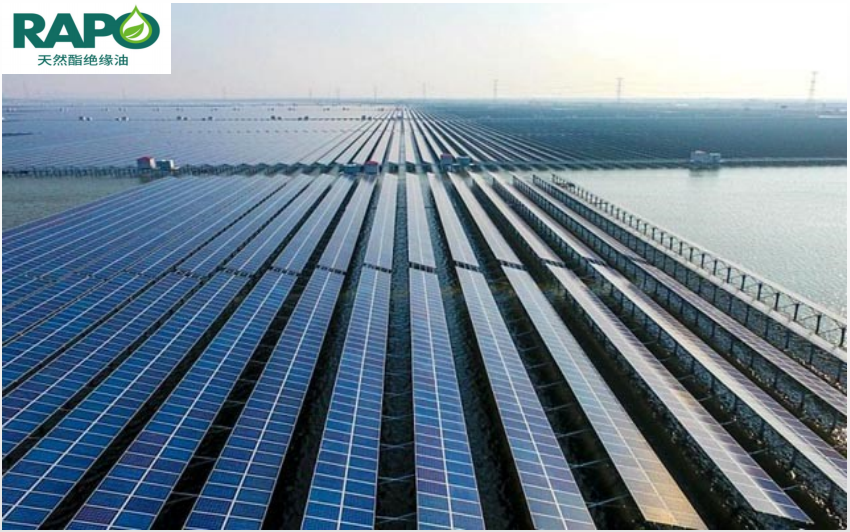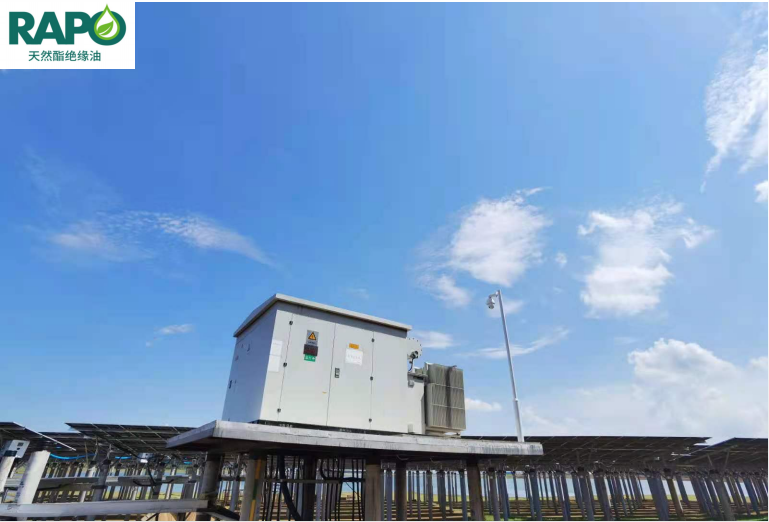Floating photovoltaic (PV) power plants refer to PV power stations where PV modules are floated on water surfaces by constructing floating platforms. This model not only occupies no land resources but also allows the water body to cool the PV modules, thereby achieving higher power generation.

Since the platforms are built on fish ponds, this poses a significant test for the environmental friendliness of photovoltaic (PV) equipment. Traditionally, transformers use conventional mineral oil for internal insulation. When a transformer malfunctions and causes mineral oil leakage, the leaked mineral oil not only pollutes the water surface, but the toxicity in the mineral oil also leads to mass death of fish fry in the ponds, resulting in irreversible losses.
JOOYN' RAPO® products are based on natural and renewable plants. They not only outperform traditional mineral oil in terms of performance, but also possess characteristics such as degradability, oral non-toxicity, and non-toxicity to aquatic organisms. In terms of carbon emissions, RAPO® natural ester accounts for only 1/55 of that of traditional mineral oil.
With its excellent performance, RAPO® natural ester has been favored by the Yue Hydropower Huayue Zhanjiang Suixi Floating PV Project and successfully applied in this project.

The "fishery-solar complementary" model boasts enormous development potential in the future. This intensive development model, which features "power generation above and fish farming below" and "one resource supporting two industries," does not occupy agricultural, industrial, or residential land. It greatly enhances the economic value of land per unit area and achieves a win-win situation across social, economic, and environmental benefits.


